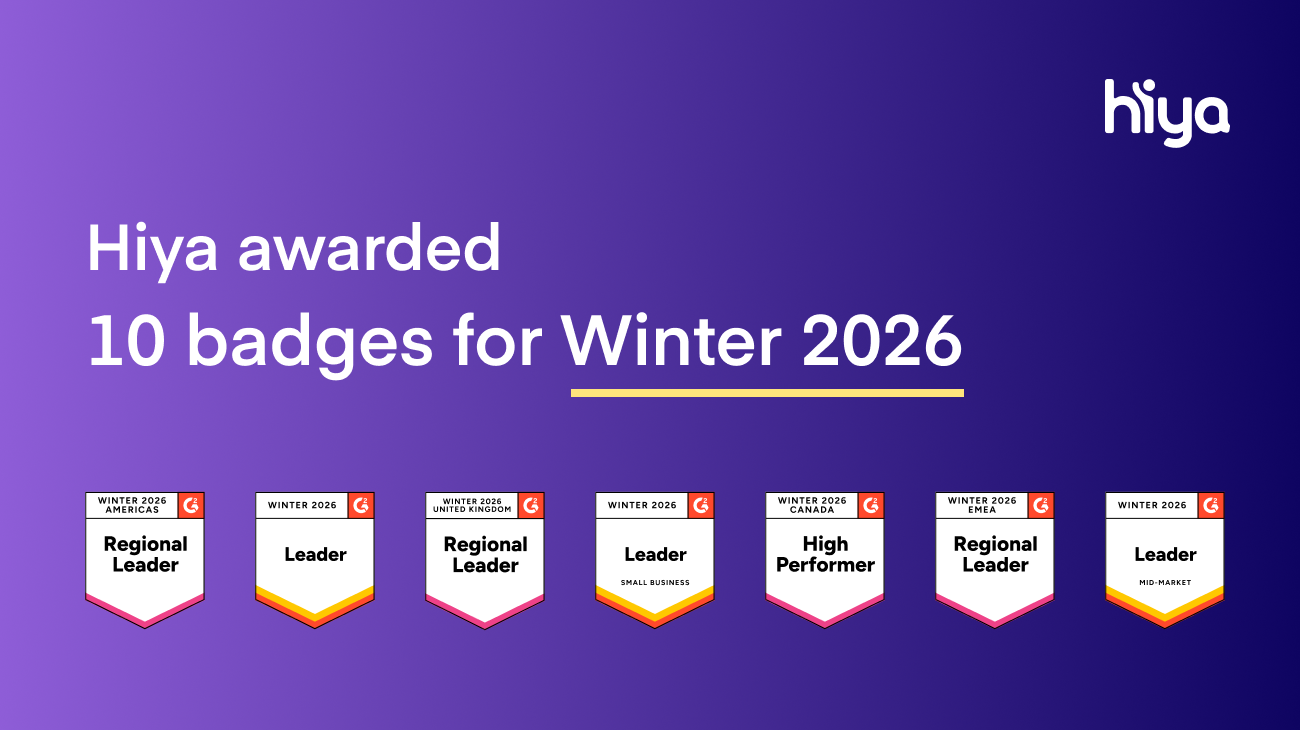
Which country gets the most spam calls? Of the 40+ countries analyzed in Hiya’s Global Call Threat Report, Brazil is the clear “winner.”
Each month, Brazilians receive an average of 28 unwanted calls! That’s about one spam call every single day. Even worse: a high percentage — 17% — are fraud calls, which are intended to steal money or personal information. Also high is the percentage of nuisance calls, at 31%. Nuisance calls are legal, yet sometimes annoying calls such as telemarketing calls, surveys, etc.

Spam ratios represent the number of unwanted calls from “non-contacts,” which are calls placed from numbers that are not in an individual’s address book.
Findings come from Hiya’s Q1 2025 Global Call Threat Report, which measures phone spam in 40+ countries and details the top scams in 7 key countries.
Bank scams are the most common in Brazil
In Brazil, almost all of the top scams relate to banks or financial transactions. Bank scams are not unique to Brazil, but what is unique is the absence of the variety of scams we see in other countries.
The most commonly mentioned bank names include, in order: Bradesco Bank, Caixa Federal Bank, Nubank, and Santander Bank.
Usually these scams involve an imposter posing as a bank representative claiming there is a problem with the bank account and they need to verify information such as an account number or password. These scams can be financially devastating if the scammer succeeds and gains access to the person’s bank account.

Closely related to bank scams are credit card scams, which were also common in Brazil in Q1. These use the same tactics as bank scams, usually insisting there is a problem with a credit card transaction and account information is needed to resolve the matter.
PIX payment scams are also popular in Brazil. Developed by the Central Bank of Brazil, PIX payments enable transactions to occur in less than 10 seconds, 24 hours a day, 7 days a week. The speed and availability of payment transactions makes PIX very attractive to scammers.
Brazilians also experience scams related to the country’s social security program, INSS, which provides retirement pensions, healthcare, and other benefits. Hiya users report INSS imposters calling to obtain “proof of life,” a process to verify that the beneficiary is still alive and eligible to continue receiving benefits. This is one of many excuses used by criminals to steal citizens’ private INSS information.
Get the full report
The Global Call Threat Report is a valuable resource for phone carriers, businesses and individuals. Use the report to compare phone spam in your own country with other countries in your region and other countries around the world. Read the report to discover:
- Top phone scams in US, UK, Canada, Spain, France, Germany and Brazil.
- Spam calls per person per month, and percentage fraud vs. nuisance, in 40+ countries.
- Spam call comparisons by region.
- Special section on AI-generated spam calls.
Download the Q1 2025 Global Call Threat Report

.jpg)

